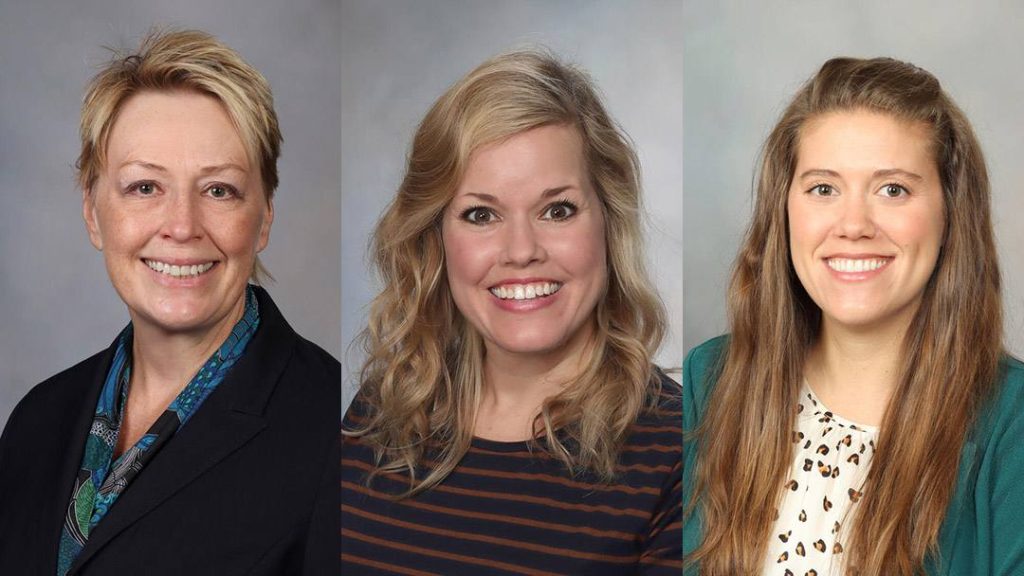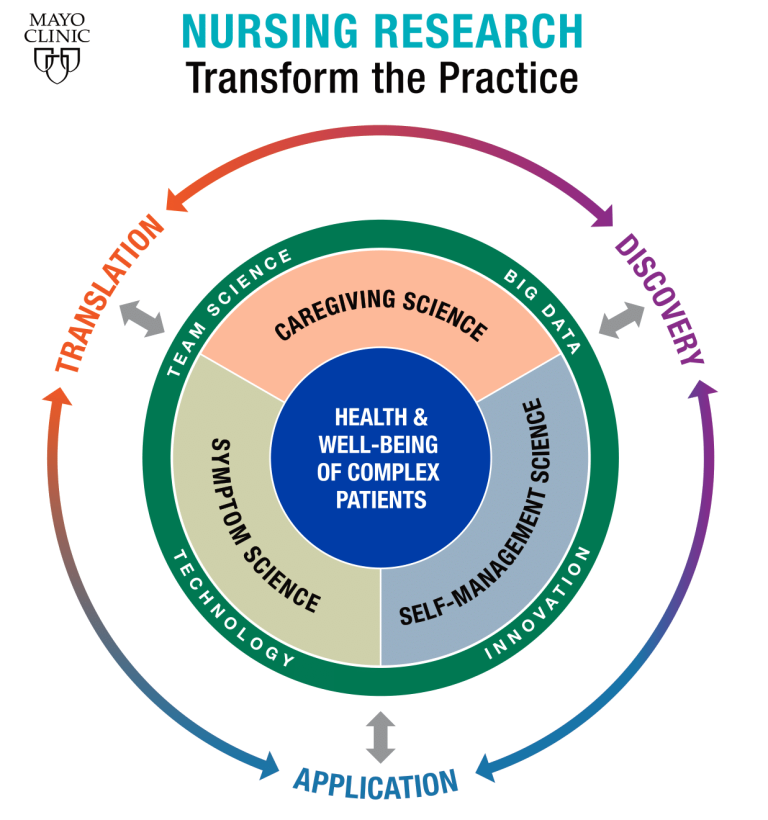-
Research
Pioneering change: The inception and potential of Mayo Clinic’s Nursing Research Scholars

Mayo Clinic’s Department of Nursing welcomes its first Nursing Research Scholars. As an Academic Medical Center, Mayo integrates clinical practice with research and education to deliver the best possible care. In its inaugural year, three scholars were accepted into the unique Nursing Research Scholar program. Under the guidance of nurse scientists in the Division of Nursing Research, the Nursing Research Scholars are Ph.D.-prepared nurses who will now dedicate one day a week to research that improves patient care.

Research at Mayo Clinic begins with the unmet needs of the patient. As a patient or a loved one, you want to be sure you are receiving the best care from the best-trained staff who follow evidence-based care. Nurses provide direct care to patients daily, so they know which approaches work well and which need adjusting. A key characteristic of an effective practitioner is the ability to evaluate standard procedures and identify opportunities for improvement. The concept of refining nursing practices and procedures is at the heart of nursing research.
Education and training are ongoing in medicine, and nurses are frequently tasked with updating their knowledge. Amanda Rossley, Ph.D., a nurse manager in nursing professional development, hopes to study the latest in training pedagogy by using gamification to improve learning among nurses. “Gaming is an active learning strategy that improves concentration, creativity, memory and engagement,” she says. She hopes her research will contribute to data-driven insights that lead to the practical translation for gamification-based nursing and patient education that improves patient care. For patients, this means the possibility of playing a game to learn more about managing conditions, instead of reading about it.
The clinical performance of a nursing student is influenced by their mental health, social support, the learning environment and self-efficacy, or the belief in one's capacity to perform. Jeanine Gangeness, Ph.D., a program director in Nursing Academic Affairs, is on a mission to enhance the existing training environment for nursing students by pinpointing which interventions increase student self-efficacy and sense of belonging. “This research is an investment in the future workforce of Mayo Clinic,” she explains. “Nursing students with high self-efficacy are more likely to work hard, complete their tasks and be more resilient in the face of failures, leading to better patient outcomes and more competent and confident nurses.”
For patients with adverse symptoms, relief cannot come soon enough. Despite monumental advances in medical practice and technology, many questions remain regarding symptom management in complex patients. Savannah Zins, Ph.D., a nursing education specialist in nursing professional development, says, “Understanding the biological and behavioral aspects of adverse symptoms through symptom science can improve patients’ quality of life, reduce chronic symptoms and burden, and lower healthcare costs.” Through her research, Zins hopes to identify non-pharmacologic and nursing interventions to make patients more comfortable.
Because Mayo Clinic is highly collaborative, discoveries from one area are quickly translated to other areas. Within this scholarly environment, staff at Mayo continually seek new medical knowledge and ways to rapidly and responsibly validate and apply it. The Nursing Research Scholar program is one example of how the organization empowers nurses to integrate their clinical expertise with guided research opportunities, applying their findings to drive change. These research initiatives will have a positive impact, enabling the organization to share discoveries that lead to improved healthcare beyond its walls.







